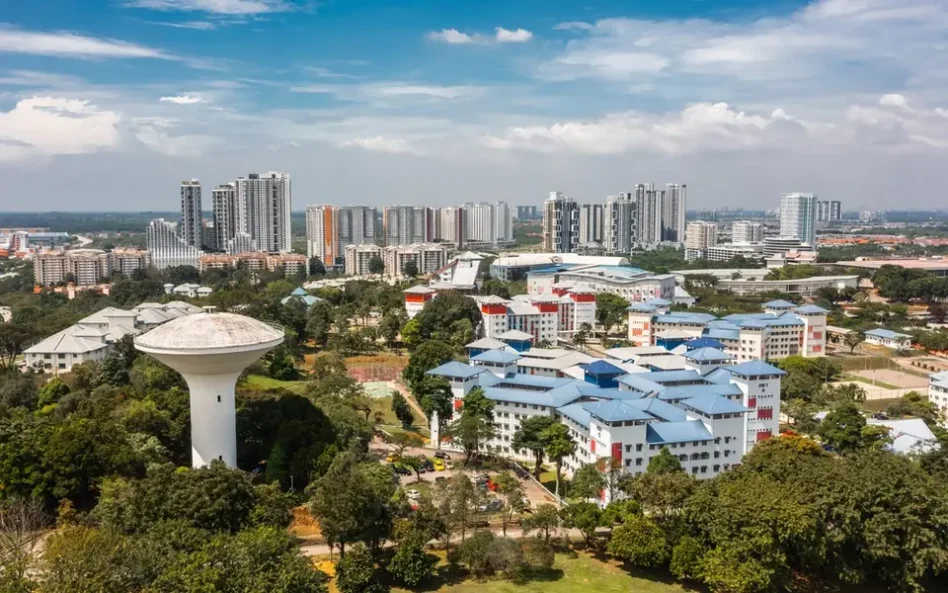By Sharina Ahmad
WILL things change for the Malaysia property market in 2020? Have we hit the bottom of the property price cycle?
One thing has changed, though. The stubbornly high prices of houses – making it prohibitive for young Malaysians to buy property – has led to renting becoming the main alternative.
Even then, will rentals go down further this year in the wake of the mighty overhang in the property market? Does Malaysia have in place the foundations for a sustainable renting environment?
Here are eight matters concerning the rental market to watch out for this year:
1) Expect rents to decline
With the release of more property in 2020, everyone is expecting rents to further reduce this year and into 2021.
Nawawi Tie Leung Property Consultants Sdn Bhd executive director Brian Koh says rentals face a strong possibility of declining further as supply is seen to continue to outstrip demand considerably.
“This is because of faster completion of new projects that will come into the market compared to the growth in tenant demand. Tenants have lots of choices, so rental activities are mainly focused on relocation from older to newer units at possibly lower rentals.
“Owners, especially speculative investors with multiple units bought under low upfront and no interest payment schemes in the past, could be under pressure to generate income to service mortgages and they will have a strong motivation to secure tenants, even at lower than market rates,” he tells FocusM.
Ernest Cheong PTL Chartered Surveyors consultant and senior partner Dr Ernest Cheong says as more families are not able to buy houses, they are looking to rent homes.
“For higher-priced condominiums and detached houses, rentals of RM3,000-RM4,000 a month would likely remain unchanged, but they could drop as existing tenants move to cheaper accommodation and new tenants can’t afford to pay the high rent,” he points out.
According to him, apartments and terrace houses in the Klang Valley that in 2018 and 2019 would rent for RM1,000-RM1,500 a month would be the most popular for new tenants.
“This year, due to increased demand and relatively short supply of these houses, the rents for them would increase to between RM1,500-RM2,000,” he notes.
Raine & Horne International Zaki + Partners Sdn Bhd associate director James Tan agrees that the rental market would go down further this year. “Yes, (particularly) for serviced apartments, condos, offices and retail due to the huge amount of already existing supply as well as those being completed in the next two years,” he tells FocusM.
According to the latest data released by the National Property Information Centre (Napic) which was in September last year, close to 40% of the overhang in residential properties in the country is made up of high-rise units priced below RM400,000.
The data shows that the number of overhang residential properties as at 1H2019 had accumulated to 32,810 units worth RM19.76 bil, an increase of 1.5% in volume while the value decreased by 0.5%, as compared to 32,313 units worth RM19.86 bil in 2H2018.
Of the ‘overhang’ homes, about 43% are condominiums or apartments. Many of these are priced at RM200,000 to RM300,000 (22.3%), followed by those in the RM300,001-RM400,000 bracket (17.5%) and more than RM1 mil (12.8%).
The increased number of affordably priced residential properties that remain unsold has also caught the authorities’ attention.
According to the definition by Napic, overhang properties are those which have received the Certificate of Completion and Compliance (CCC) but remain unsold for more than nine months after completion.
2) It’s a tenant’s market
There is now more choice in the market for tenants in terms of location, quality and value. Landlords need to keep the property well-maintained and attractive to tenants. Professional property management and maintenance services will be in demand to ensure the highest occupancy rate.
“Yes, 2020 and beyond will definitely be a tenants’ market,” says Cheong.
According to online portal iProperty.com.my, the new supply of completed units plus the existing units will lead to a downward pressure in the rental market as would-be tenants will be spoilt for choice while landlords fight for them.
“This will make it ideal for would-be renters as landlords will most likely be open to price negotiations. Meanwhile, landlords will be at the losing end, regardless of whether they manage to secure tenants or not.
“The rentals will most likely not be able to cover the mortgage resulting in negative cash flow. In the latter case, landlords will have to cover the mortgage themselves. Those who cannot maintain the house will have no choice but to let go of their units,” it said.
Raine & Horne International’s Tan says this year will definitely be one for the tenants.
“They can pick and choose and have many alternatives/choices. The issue, especially for offices, is the relocation cost, not so much for residential,” he says.
3) New terms for rental payment
Expect new ways of rent payments such as direct debit monthly payments to become standard in 2020.
“There may be some innovative online rent payments, but I think most of the tenants will pay their monthly rent directly to their landlord, who are individuals using the old fashioned cash or cheque payment methods,” Cheong notes.
However, Tan says, due to the supply situation, tenants may ask for more freebies and flexible terms. Some shopping centres are giving three to six months rent-free to lure tenants.
4) No loan default and credit score
According to Cheong, due to the uncertain economic situation and the high risk of being unable to make monthly mortgage payments to the banks for the next 30 years, it would be preferable for would-be house buyers to consider the rental option where the would-be tenant has no loan default worries and would not be subject to ‘credit score’ financial scrutiny.
“Those who rent houses will have no liability and responsibility to the bank,” he says. “When the would-be tenant takes the rental option the person would have no loan liability to the bank as he has no responsibility to pay the bank the fixed monthly housing loan payments. The would-be tenant is completely free of the banks.”
5) No fixed commitment
Cheong notes that when the would-be tenant takes the rental option and is free of the responsibility to make the monthly housing loan payments, he is able to respond to changes in his financial situation, say, when he loses his job.
“He therefore avoids the possibility of having to default on housing loan payment and face bankruptcy.”
6) Flexibility to downgrade
In today’s economy, many people struggle to make ends meet. By renting, people have the option to downgrade to a more affordable living space when their lease expires.
“Flexibility to downsize is especially important for retirees who want a less costly, smaller alternative that matches their budget.
“When you’re a homeowner, it’s much more difficult to break free of an expensive house because of the fees involved with buying and selling a home. Also, if a homeowner has invested a significant amount of money in renovations, the selling price might not cover these costs, leaving them unable to sell or move,” says Cheong.
He notes that the flexibility available to a tenant is not available to a homeowner who is saddled with fixed monthly housing loan payments to the bank no matter what happens to his personal situation.
7) Healthy balance between demand and supply
Developers are expected to be more pragmatic when it comes to launching new projects and thus help create a healthy balance between supply and demand. They are likely to focus on creating the right kind of supply that aligns with the aspirations of a city and its people.
Cheong says it must be remembered that supply and demand for properties depend on the overall economic situation in Malaysia. “If the economy is bad and people can barely survive and barely manage to pay for food and rent, they do not have spare money to buy properties.”
He foresees that for the next five years at least, 95% of Malaysian families can only think of how to survive day-to-day. They dare not think – cannot afford to think – of buying properties because they simply cannot afford them.
“When 95% of Malaysian families cannot afford to buy properties, there is no demand for properties. It’s obvious that when there is no demand and there is an oversupply of properties, prices will fall. So, property prices will continue to fall for at least the next five years,” Cheong concludes.
Tan sees the property market, especially rental demand, adjusting by itself. “In short, supply is increasing, demand is stable and rental is likely to consolidate.”
8) Factors affecting rental market
According to Koh, the main factors that have indirectly affected the rental market include foreign direct investment (FDI) growth, employment prospects, salary increases, resuming the Malaysia My Second Home (MM2H) approvals for qualifying foreigners, and the growth of, and rules for, AirBnB.
“Over the short to medium term, it will likely be a tenants’ market. However, there is a limit to the downside decline in rentals for high-end condos as most of these owners have greater holding power and therefore have less pressure to reduce rental to rock bottom; they would rather leave them vacant than get tenants of the wrong profile,” he opines. – March 11, 2020









